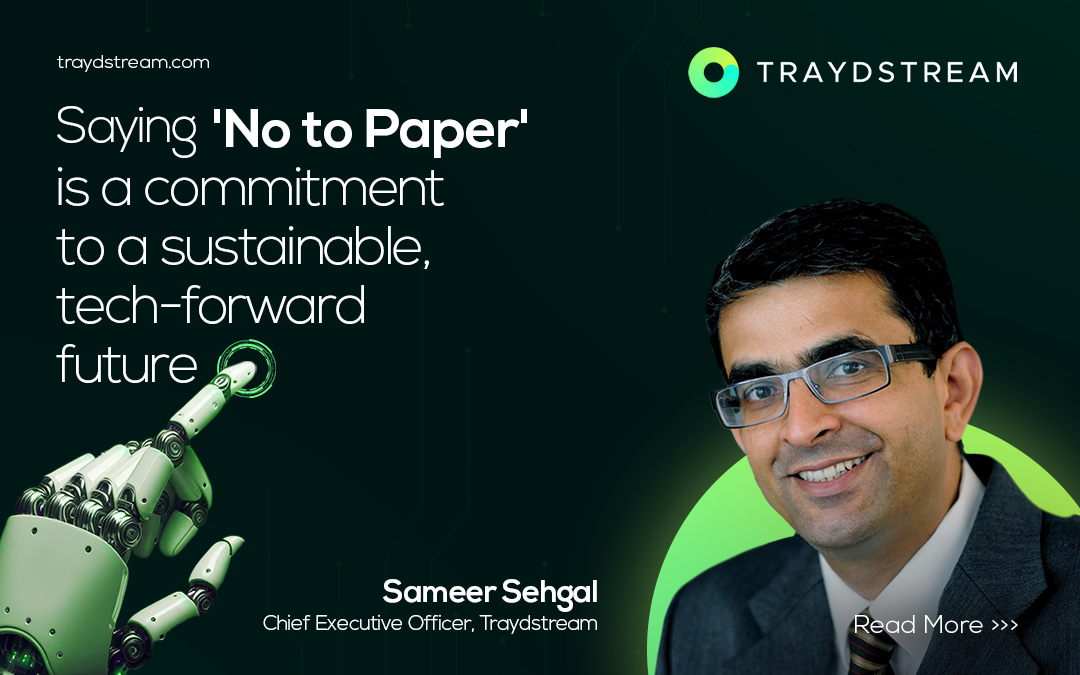
In a world dominated by electronic devices and seamless data accessibility, the use of paper in trade seems like a vestige of the analog age—an anachronism in today’s fast-paced digital landscape. The reliance on traditional paper documentation in trade transactions was once deemed necessary to evidence transactions and establish terms between buyers and sellers. This need for paper was crucial for banks to facilitate the flow of goods and transfer goods title.
However, it has become more evident that it was always the data that held the value, not the physical paper it was printed on. Paper, in essence, served as a conduit for data to move seamlessly between parties involved in a trade.
In the new age of digital trade, where data is automated at its source, and processing occurs in real-time, the reliance on paper becomes obsolete. Exporters and importers can now create digital documents that can be checked online, shared through innovative platforms like Traydstream’s TraydConnect, and verified by all relevant parties without the need for physical paperwork.
The good news is that we now possess the tools to emphatically say ‘No to paper.’ Across the globe, legal and regulatory frameworks are making significant strides to render paper redundant in trade transactions. It’s time for us to embrace digital frameworks and platforms, which are not only simpler and more scalable but also offer enhanced security and stability.
Digital trade platforms not only expedite transaction processing but also provide superior auditing and transparency. These platforms enable remote work flexibility, establish centralised process flows, simplify task automation, and enhance organisational resilience against unforeseen events like the Covid-19 pandemic.
Importantly, making the shift from paper to digital isn’t just a matter of convenience; it’s a responsibility we owe to ourselves, our children, and future generations. By embracing digital trade, we contribute to preventing deforestation, making our planet cleaner, healthier, and more nurturing for the generations that follow. It’s time to move in a new era where the exchange of goods is not only efficient but also environmentally conscious.
Saying ‘No to paper’ is not just a choice; it’s a commitment to building a sustainable and technologically advanced future.



